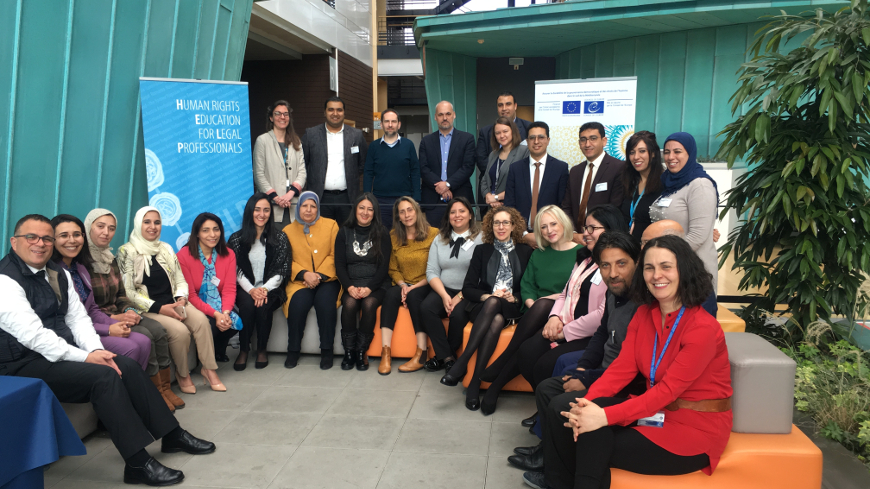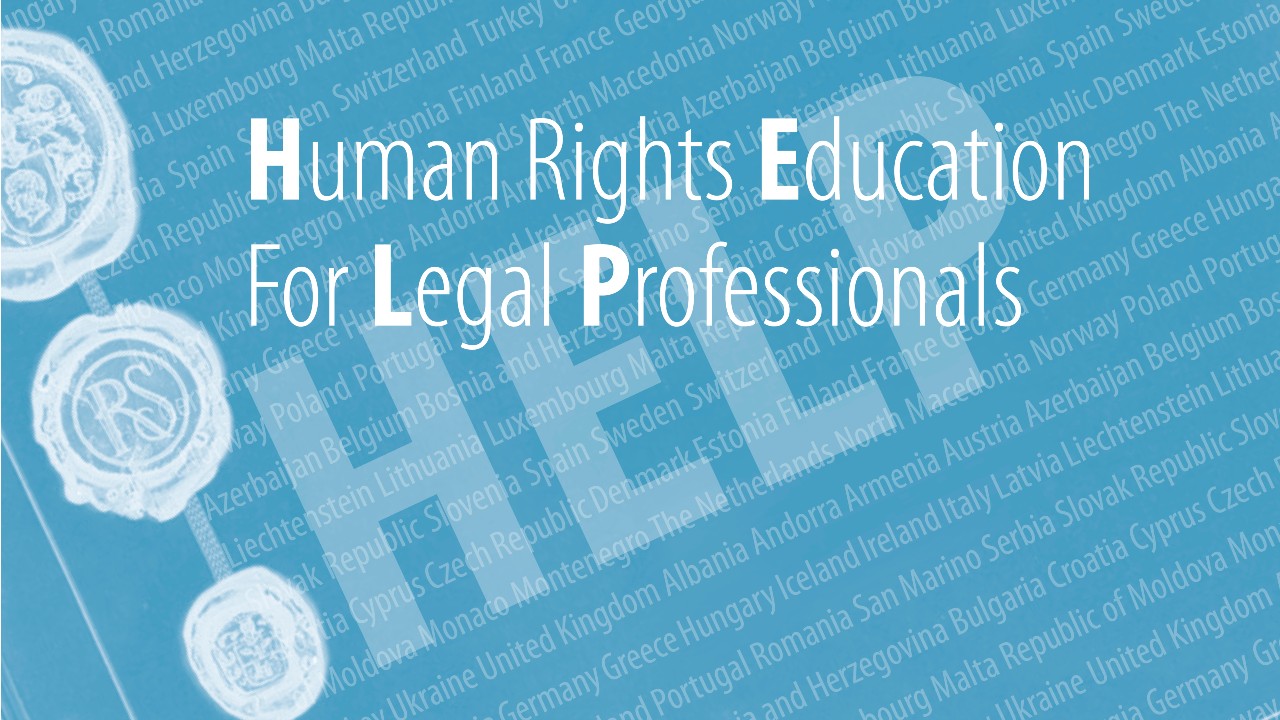With EU support, representatives of Morocco and Tunisia gathered in Strasbourg on 25 and 26 March 2019 to attend the first Training of Trainers for justice professionals organised by the Council of Europe Human Rights Education for Legal Professionals (HELP) Programme.
The Training of Trainers (ToT) was organised under the “Ensuring sustainable democratic governance and human rights in the Southern Mediterranean” (South Programme III)*1.
The “South Programme III” is open to Southern Mediterranean partners covered by the Council of Europe's Policy on Neighboring Regions (Algeria, Egypt, Israel, Jordan, Lebanon, Libya, Morocco, Palestine*2 and Tunisia). In particular, it provides for specific regional activities aimed at contributing to the strengthening of human rights. The training of legal professionals, who are at the forefront of protection mechanisms for these rights, is an important component, said Amélie Lépinard from the Council of Europe Directorate General of Programmes.
The ToT is the first milestone in extending the HELP Programme beyond the borders of the Council of Europe, particularly in the areas of violence against women, child-friendly justice, trafficking in human beings and data protection.
The HELP Programme strengthens the capacity of legal professionals to apply human rights standards in their daily work. It provides tailor-made, high-quality courses on human rights issues addressed in several Council of Europe conventions. Council of Europe conventions set standards in the fields of human rights and rule of law, and contribute to the development of a common legal space at pan-European level and beyond. The advantage of the Council of Europe conventions is that most of them are open to countries which are not members of the Council of Europe. Some Southern Mediterranean partner countries have already acceded or expressed their interest in acceding to a number of Council of Europe conventions.
The main objective of the ToT was to introduce the HELP programme, its methodology and selected courses to the participants, and to give them the practical skills to use the HELP online courses so that they can be adapted to the needs of the respective institutions or audiences. Participants were encouraged to appoint focal points in national training institutions for judges, prosecutors and lawyers, and to disseminate HELP courses among other legal professionals from Southern Mediterranean countries, as well as to universities.
Once ToT participants pass the practical assignment, they will be ready to act as national tutors in their home countries and moderate the HELP courses. Those participants will be certified and included in the roster of HELP trainers which is available on the HELP website. Relevant National Training Institutions for judges, prosecutors and lawyers will be subsequently informed of the opportunity to select from this pool trainers for national or international activities. In the case of universities, HELP tutors will be able to use the HELP courses with their students.
The following HELP Programme online courses were presented:.
- Child-friendly Justice – Mehdi Remili, Human Dignity and Gender Equality Department, Directorate General of Democracy
- Combatting Trafficking in Human Beings – Petya Nestorova, Head of the Trafficking in Human Beings Division, Directorate General of Democracy
- Violence against Women and Domestic Violence – Eva Pastrana, Head of HELP Unit, Directorate General Human Rights and Rule of Law
- Data Protection – Sophie Kwasny, Head of Data Protection Unit, Directorate General Human Rights and Rule of Law
- Presentation of the European Court of Human Rights – Dmytro Tretyakov, Head of Division and Filtering Section, Registry of the European Court of Human Rights
Other courses that raised interest among participants were the Rights of Refugee and Migrant Children and the course on Key human rights principles in Biomedicine.
The future HELP activities planned under the EU-CoE “South Programme III” will take into consideration the expressions of interest of different national training institutions in launching courses in cross-border format. Specific CoE projects for Tunisia (such as the EU-CoE joint programme to support Tunisian independent bodies) and Morocco will also include the development and launch of national versions of HELP courses.
The HELP catalogue of courses has over 34 thematic courses and more than 240 translations and adaptations available.
Presentations:
- HELP cours sur la traite des êtres humains et la protection des victimes, Petya Nestorova
- La protection des données : l’incontournable Convention 108, Sophie Kwasny
*1 The South Programme III is a joint programme of the Council of Europe and the European Union, financed by the European Union and the Council of Europe and implemented by the Council of Europe.
*2 This designation shall not be construed as recognition of a State of Palestine and is without prejudice to the individual positions of Council of Europe member States on this issue.





